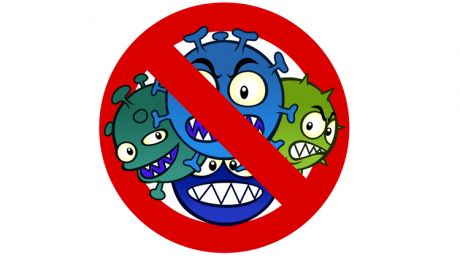How to stay healthy for life
Protect yourself against the biggest threats to your health with a few simple lifestyle changes

They may not create widespread panic like swine flu or Sars, but diseases such as cancer and stroke affect hundreds of thousands of men each year, often with devastating results. But by taking stock of your habits and looking for the common warning signs, you can reduce your risk and increase your chance of survival. MF explains how you can defend yourself against four of the UK’s biggest killers.
Cancer
The catch-all name for hundreds of diseases caused by uncontrolled cell growth, cancer is one of the world’s most prevalent health risks – so much so that, statistically, one in three of us will get it at some point in our lives.
According to charity Cancer Research UK, there are more than 200 different types of cancer that can develop in over 60 different body organs. ‘Generally, the cause of cancer is an interaction between genetics and environment – things such as diet and lifestyle,’ says Professor John Chester, co-director of Cardiff University’s Institute of Cancer and Genetics.
Eating well, exercising regularly and cutting out risk factors such as smoking can help to prevent cancer developing, but if you are diagnosed the chances of curing the disease are on the up. ‘There’s no such thing as a wonder drug that cures all cancer and never will be, but we are making great progress,’ says Chester. ‘Testicular cancer, for example, is curable in almost all cases, so get yourself to the doctor if you have any lumps, aching or swelling in the testes.’
Heart disease
Coronary heart disease, or CHD – when the walls of the arteries become narrowed by a build-up of fatty deposits – is the main cause of death in the UK. Every seven minutes, someone has a heart attack.
‘There are quite a few risk factors for heart disease,’ says Amy Thompson, senior cardiac nurse at the British Heart Foundation (bhf.org.uk). ‘Some you can’t do anything about, such as your age or family history. But some you can, such as controlling your blood pressure and cholesterol levels. If you have high LDL cholesterol, for example, try cutting down the amount of saturated fat from processed foods in your diet, and get plenty of exercise to condition your heart muscle.’
Taking steps to safeguard yourself in your 20s and 30s will pay dividends in the long term. ‘Typically, men develop heart disease in their late 50s onwards, but it may have taken 20 years for the arteries to fur up to a critical point,’ says Thompson. ‘The earlier you start making those lifestyle changes, the better.’
Get the Coach Newsletter
Sign up for workout ideas, training advice, reviews of the latest gear and more.
Stroke
The UK’s third biggest killer, accounting for around one in ten deaths, stroke has similar risk factors as many heart conditions, such as high blood pressure and cholesterol – and can therefore be prevented by making similar lifestyle changes.
‘Stroke tends to occur more in the elderly, but the incidence is growing among younger people,’ says Dr Peter Coleman, deputy director of the Stroke Association (stroke.org.uk). ‘People are leading hectic lives, getting more stressed at work and eating processed foods for ease.’
The important thing is recognising the symptoms, which can be remembered using the acronym FAST: facial weakness, arm weakness, speech problems and time, which is crucial. ‘The sooner that you can get someone into hospital, statistically, the better their outcome,’ says Coleman.
Liver disease
It may not be as high-profile as cancer or CHD, but liver disease is one of the few large-scale killers whose mortality rate is still on the increase.
‘The three main causes are alcohol, obesity and viral hepatitis,’ says Andrew Langford, chief executive of the British Liver Trust (britishlivertrust.org.uk). ‘Reassess your diet and try to cut down on the drinking – take two to three consecutive days off alcohol every week. Practise safe sex and, if you think you’re doing anything that puts you at risk, get tested for hepatitis B.’
Unlike many other diseases, the warning signs of a diseased liver are harder to spot. ‘Because the liver doesn’t have any nerve endings, you don’t get many symptoms,’ says Langford. ‘Keep a check on subtle signs such as prolonged fatigue, mild jaundice or yellowing of the whites of your eyes. If you catch it early enough, the damage can be reversed and your liver will recover.’
Serve and protect
Foods that help to ward off disease
Broccoli - to beat cancer
Broccoli has nutrients with proven anti-cancer properties such as diindolylmethane (DIM). Eat steamed or even raw for more benefits.
Beans - to beat CHD Beans such as kidney beans and black beans contain fibre to improve cholesterol and potassium to strengthen the heart.
Porridge - to beat stroke
Oats are stuffed with dietary fibre, which can help to keep your arteries functioning well and free from blockages.
Avocado - to beat liver disease Good fats help balance cholesterol levels, while vitamin B6 and folic acid break down fats to keep your liver in good health.
Coach is a health and fitness title. This byline is used for posting sponsored content, book extracts and the like. It is also used as a placeholder for articles published a long time ago when the original author is unclear. You can find out more about this publication and find the contact details of the editorial team on the About Us page.

